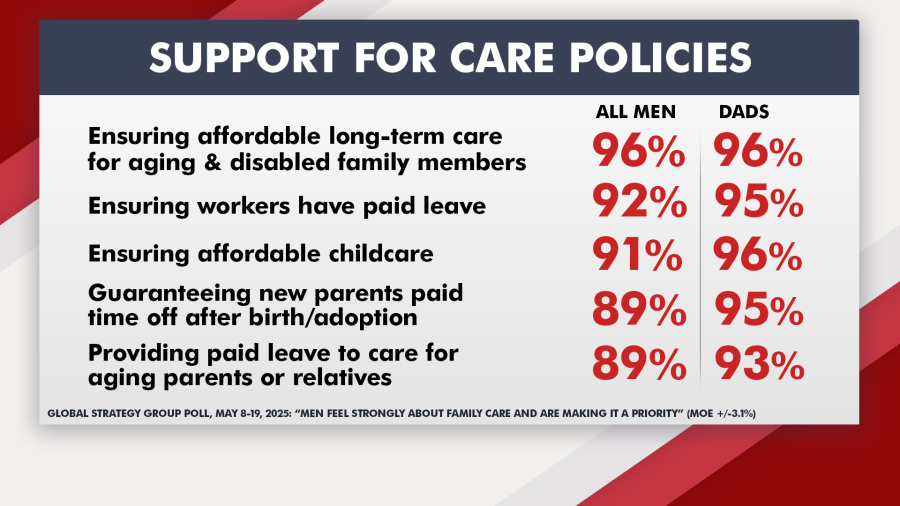Michael Robbins recently moved to New Mexico to be closer to his adult sister with autism. He drives an hour each way to visit her. He brings her french fries and they like to read together. He often goes to his parents’ home to help with gutter clearing and chores around the house.

Jonathan Hammer is a lawyer in Washington, D.C. He makes his kids breakfast, makes dinner most nights, does pick-ups, shuttles the kids to sports and lessons, does laundry, and loves to read to them each night.
Lee Jorwic in Illinois is a retired small business owner and takes care of his mom in her 90s. He also looks after his adult son with disabilities and his grandkids who live in town — all at the same time.
These are stories of real men in America, from our organizations’ networks. But these stories are not the stuff of news headlines. The political pundits might have you believe all men are becoming anti-government, anti-progress, anti-care, and that a toxic masculinity is taking over. Immediately after the presidential election we saw the jockeying for men’s attention — the pandering on podcasts, performances with chainsaws and push-up contests.
Why paid family leave is much more than a women’s issue
But a recent survey of men in America found something different. Ahead of Father’s Day, our organizations — Paid Leave for All, Community Change and Caring Across Generations — conducted a nonpartisan, nationwide poll of 1,000 male registered voters to better understand what men felt about the state of the country, the ways they define masculinity, and the problems and policies that motivate them. What we found wasn’t doom and gloom, but instead, surprising and hopeful.
It turns out men across party lines and different walks of life overwhelmingly want government policies that allow them to be actively involved in their families — and this is connected to their ideas of masculinity, not contrary to it.
As for what they’re feeling, men reported being “hopeful” (52 percent) and “proud” (44 percent) much more often than “frustrated” (35 percent) or “angry” (22 percent), especially for dads.
When provided a list of values, men ranked “family” at the top. They reported being worried about costs and affordability and providing for their families, and they’re equally worried about the health of their families.
Dads said that providing for their family (65 percent) and supporting their family emotionally (58 percent) were top priorities, more than being recognized for their work (32 percent) or advancing in their careers (33 percent).
Most fathers said that taking care of their children (83 percent) made a man more masculine, even more than working a full-time job (76 percent).
And the policies they support? More than 90 percent of men supported paid leave, affordable childcare, and affordable long-term care for all workers.

That included more than 95 percent of dads, more than 90 percent of independents, and 87 percent of Republican men. The numbers of Black, Hispanic, AAPI, and Gen Z men were even higher.













